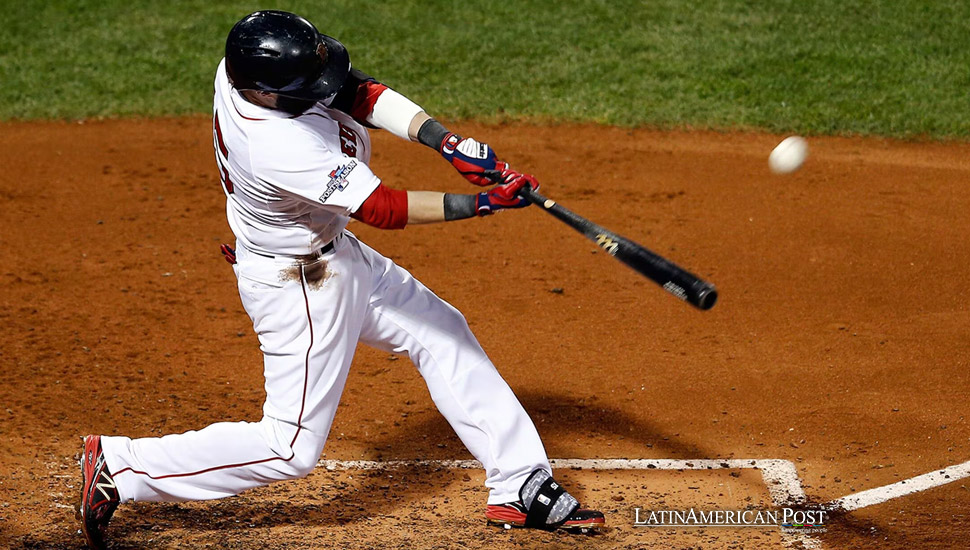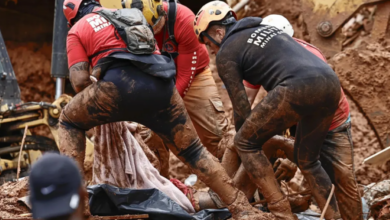CAA’s Strategic Push into Latin American Baseball Prospects Expands

In an exclusive Forbes report CAA executives discuss their increasing focus on Latin American baseball prospects. As the majority of foreign-born MLB players hail from the region, CAA is investing heavily to support and educate the next generation of talent.
CAA’s Investment in Latin America
Creative Artists Agency (CAA), long a powerhouse in the world of Major League Baseball (MLB), is shifting its attention to the booming talent pool of Latin American players. According to Forbes, CAA’s recent focus on expanding its baseball representation into Latin America is not just about securing contracts with promising athletes—it’s about shaping futures. In 2024, CAA represented a record-breaking 12 players at the MLB All-Star Game, including three from Latin America, marking a significant milestone for the agency’s baseball division.
CAA’s push into Latin American talent reflects a broader trend within MLB, where nearly 30% of players are of Latin American descent. With the appointment of Giovanni “Gio” Rodriguez as Senior Director of Latin America in CAA Sports’ Baseball division, the agency has made clear that it intends to become a major player in this space. Rodriguez, a first-generation Dominican-American, has been instrumental in representing some of MLB’s top Latin talent, including Marcell Ozuna and Willy Adames.
Rodriguez’s promotion highlights CAA’s commitment to identifying and nurturing Latin American prospects who have the potential to be the next big stars. By placing a strategic focus on Latin America, CAA is ensuring that its representation model aligns with the growing importance of Latin players in MLB. The agency’s approach is not just transactional; it’s designed to develop a long-term partnership that supports players on and off the field.
Helping Players Navigate MLB Culture
One of the most significant challenges Latin American players face when transitioning to MLB is culture shock. Young players are often thrust into a world that is vastly different from their upbringing, and the adjustment can be overwhelming. This is where education becomes critical, according to Rodriguez, who has been a key advocate for educating Latin American players to better understand the complexities of the MLB ecosystem.
In his Forbes interview, Rodriguez emphasized the importance of preparing young prospects for life in Major League Baseball beyond just playing the game. “These kids have really only been focused on the game in Latin America – some from as young as the age of 12 and up,” said Rodriguez. “They can be signing professional contracts at 16 years old, and this is really all they’ve ever known.”
Rodriguez has made it his mission to bridge that gap by not only representing players but also educating them on essential aspects of life in the U.S. He talks about the need for players to understand everything from arbitration and free agency to financial literacy and language skills. His client Willy Adames, for example, has successfully navigated MLB’s intricate landscape, becoming fluent in English and mastering the business side of the sport. For Rodriguez, Adames’ journey from a Dominican prospect to an MLB star represents the kind of full-circle success he strives to achieve for all of his clients.
“I’ve been fortunate enough to see something like that come full circle. That’s really my goal,” Rodriguez told Forbes. “We don’t want to just represent them and address their day-to-day needs, but rather educate guys on what the business is and how things may look like for them in the future.”
The Challenges Facing Young Latin American Players
For many young Latin American players, the journey to MLB starts in poverty. Rodriguez described the dramatic shift many players face, moving from modest backgrounds to million-dollar contracts. “How do you get a kid to go from nothing to a kid like Willy Adames, who’s fluent in English and understands arbitration, understands free agency?” Rodriguez asked.
It’s not just about securing a contract; it’s about preparing young players for the complexities of life in a new country, where they may have limited English skills and little experience with the cultural nuances of the U.S. “One of the biggest things is educating these kids,” Rodriguez said. “It’s been the biggest focus for me over my career.”
The push to educate young players extends beyond teaching them how to play baseball at a higher level. It involves helping them adapt to the everyday realities of life in North America. Agents who understand this challenge, like Rodriguez, are uniquely positioned to help players adjust, providing them with the skills they need to succeed both on and off the field.
Ryan Hamill, Co-Head of CAA Baseball, echoed this sentiment, telling Forbes that the key to CAA’s business model is building trust with players by helping them navigate the cultural and financial hurdles they may face. “Relationships and trust are the two core values that I think this industry is based on,” Hamill said. “Gio has hit the nail on the head in terms of educating his players.”
CAA’s expansion into Latin America has been strategic, with the agency understanding that the future of MLB is deeply intertwined with the success of Latin American players. As more and more young talent emerges from the region, CAA is working to ensure that these players are equipped with the resources they need to thrive in a foreign and often challenging environment.
Building Trust and Relationships
While CAA has been a dominant force in representing MLB’s top talent, the agency’s recent advancements in Latin American representation reflect a shift in focus toward fostering long-term relationships with players from the region. The core of CAA’s mission, as Hamill emphasized to Forbes, is not just about signing contracts, but about building relationships rooted in trust and mutual respect.
“When we went out and we were looking in the space, there weren’t a lot of people in the market that actually do fit the culture and want to collaborate,” Hamill said. “And Gio really fit that criteria. He knows that our business strategy is clear that CAA Baseball wishes to grow in Latin America.”
For CAA, the future is bright. The agency is not only signing more Latin American talent but also building a support system that will help these players transition smoothly into MLB. The promotion of Rodriguez to Senior Director of Latin America in CAA Sports’ Baseball division signals a new chapter for the agency as it seeks to solidify its presence in Latin America’s baseball ecosystem.
Hamill and Rodriguez both agree that the key to long-term success lies in educating players, building trust, and fostering a strong relationship that extends beyond the field. As Latin American players continue to make their mark in Major League Baseball, CAA’s role in shaping the next generation of stars will be critical.
“We’re ecstatic about the work that Gio’s done in the past and the work that he’s going to do in the future,” Hamill told Forbes. “For us to grow our business and continue to make things move forward, we need people like him in our ranks.”
As Latin American players continue to dominate Major League Baseball, agencies like CAA are doubling down on their efforts to tap into the region’s rich talent pool. As Forbes reports, CAA’s strategic focus on Latin America is reshaping the way baseball talent is identified, represented, and developed. With a growing roster of young Latin American players, CAA is not only building successful careers on the field but also equipping players with the life skills needed to succeed in a new culture.
Also read: Baseball’s Rise in Colombia Beyond Soccer’s Shadow
Through its innovative approach to representation—focusing on education, trust, and long-term relationships—CAA is positioning itself as a leader in the world of Latin American baseball. As the next generation of stars rises, CAA’s role in shaping the future of MLB’s Latin American talent will undoubtedly leave a lasting impact on the sport for years to come.





